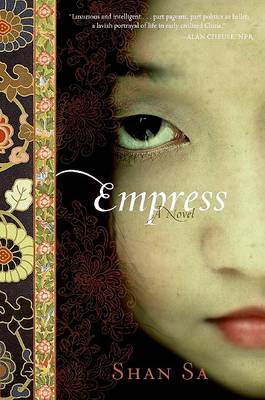Reviewed by nannah on
Content warnings:
- rape (and rape fantasy)
- incest (both between siblings and father and daughter)
- pedophilia, large age gaps, and power imbalances (50yo and a 14yo, 80yo and a 18yo; Empress who killed the girl’s father, grandfather, and all her brothers)
Representation:
- every main & secondary character is Chinese
- a few minor characters are from neighboring countries
- the Empress, at least, and several other characters seem to be bi
Empress tells the story, from childhood to death, of the only female emperor of China, Wu Zetian. It takes place during the Tang dynasty (660s to early 700s). As a child, she was noticed by a general for her talent with horses, and became a member of the old Emperor’s court, then rose through the ranks, witnessing (and becoming a member of) countless scandals and coups -- until she was Empress ruling behind the husband. Until she was Empress. Ultimately, she ruled for forty years.
The topic is fascinating, which is what kept me reading when I sometimes really didn’t want to. But I couldn’t connect to Wu Zetian/Wu Zhao/Wu Hao (she has many names). The prose is at times lyrical and poetic, but at times also unnecessarily flowery and extremely distant. It’s at odds with its first-person narrative. I think it almost reads more like a beautifully-told research paper -- there are so many details that it takes me out of the story. I don’t need to know every single intricacy of every single thing in court tradition.
For example, and this was done very often throughout the novel, it would list every single accomplice in a conspiracy against the Emperor and who they were, even if they (or their relatives) never appeared again. But the worst was when the narrative stopped completely to describe in extreme detail every person in a procession (in a style where almost every paragraph began, “Then came the troop/the parade/the procession/etc.”). This took six pages.
I understand wanting to show everything you've researched to an audience who might not know anything about this time period (and culture?), but this is just excessive.
Upon reading Shan Sa’s goodreads profile, it seems like this book was translated from French. I’m going to give the novel some leeway and hope some of the stilted passages and disconnect I have could be blamed on a bad translation.
Reading updates
- Started reading
- 15 November, 2021: Finished reading
- 15 November, 2021: Reviewed
